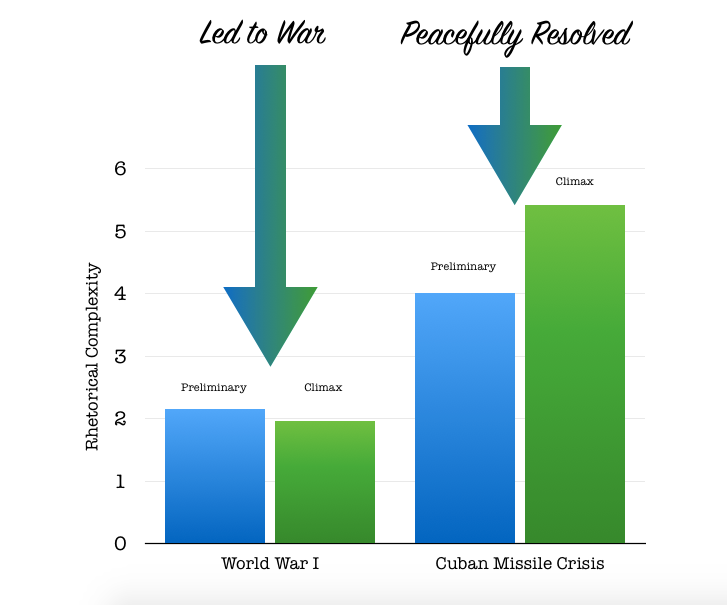This article was published in Scientific American’s former blog network and reflects the views of the author, not necessarily those of Scientific American
Obama promised no more Guantanamo Bay.
George H.W. Bush promised no new taxes.
And yet...both of these promises went (or have thus far gone) unfulfilled.
On supporting science journalism
If you're enjoying this article, consider supporting our award-winning journalism by subscribing. By purchasing a subscription you are helping to ensure the future of impactful stories about the discoveries and ideas shaping our world today.
So when Donald Trump broadcasts that illegal immigrants are “criminals and rapists” and promises to build a giant wall between the United States and Mexico, or Bernie Sanders calls income inequality the “great moral issue of our time” and vows to double the federal minimum wage, can we count on these campaign promises suffering a similar failed fate by the wayside of our democracy?
Fortunately-or-unfortunately (depending on your particular opinions regarding any of the promises involved), the answer is likely yes. Although Trump was recently lambasted in the media for speaking at the third-grade reading level, the truth is that it’s entirely unfair to criticize Trump and Trump alone for using oversimplified rhetoric on the campaign trail — because when it comes to presidential campaigning, oversimplified speech is par for the course.
In 1981, political psychologist Philip Tetlock was curious about this all-too-common phenomenon of big, bold promises during campaign season and softer, more nuanced compromises post-election -- so he gathered tons of speeches and statements from the last ten presidents1 who were elected into office, and proceeded to analyze their complexity level. Statements were coded as more rhetorically complex if the speaker took many different characteristics/dimensions of a problem into account when speaking, addressed more than one of those aspects in their proposed solutions/platforms, acknowledged that situations are complicated and there are rarely one-sided right answers, and generally drew connections between different issues with attempts to integrate different perspectives together. On the other hand, statements were coded as more rhetorically simple if they were more one-sided in their approach, generally using value-laden words like "GOOD" or "PATRIOTIC" or "THE RIGHT THING TO DO" rather than acknowledging that policy is...typically a little more complicated than that.
What Tetlock discovered was that, with the exception of one president (Herbert Hoover), every single one of the presidents used more complex rhetoric after being elected to office than while he was on the campaign trail. Politicians are consistently more simplistic with their rhetoric and express more extreme viewpoints while they're out on the campaign trail, but as soon as they are elected officials who must deal with the actual ins and outs of creating policy, they become more expressively complex.
The shift towards more complex rhetoric is really, really good — no matter what party you belong to (and in fact, this is a completely bipartisan phenomenon; moderate liberals and moderate conservatives both tend to use more complex speech than extremists on either side). Leaders who speak with more complexity are better at achieving bipartisanship & peaceful resolutions of conflicts, expressing tolerance for opposing viewpoints, and avoiding counterproductive political polarization.
In fact, in a study looking at the complexity levels in speeches & statements leading up to World War I and leading up to the Cuban Missile Crisis (a diplomatic crisis in which war was narrowly averted), the talks leading up to World War I remained simplistic -- right up until they culminated in the greatest war that the world had ever seen up to that point. Meanwhile, in the days leading up to the climax of the Cuban Missile Crisis, speakers became increasingly complex in their statements -- which de-escalated the conflict and resulted in a peaceful resolution.

Complex, measured rhetoric is generally a good thing for diplomacy.
Why do politicians speak this simplistically while they're campaigning? Interestingly enough, there's little support for the hypothesis that it's because candidates actually become objectively better policymakers once they're on the job and learning more about effective diplomacy, because when incumbent presidents start running for re-election, their speeches still re-enter the Simplistic Zone as soon as they hit the campaign trail again. Rather, it's probably due to a desire to woo constituents. People really, really like confidence and certainty (some more than others), and overly-simplified positions just have a certain ring to them that make the person speaking them seem more forceful, self-assured, and desirable as a leader. After all, just think about how much everyone hates a "flip-flopper."
So, we shouldn't necessarily be surprised that anyone on the campaign trail is using extreme, simplistic speech. Empirically? Whether we like it or not, that's just what politicians do at this point.
We should, however, feel grateful that if history has taught us anything, it's that they probably won't still be speaking this way as of November 9th, 2016.
Footnote
1. The presidential campaigns included in this analysis were: McKinley, T. Roosevelt (1904 campaign), Taft, Wilson, Coolidge, Hoover, FDR (1936, 1940, and 1944 campaigns), Truman, Eisenhower, Nixon, and Ford.
References
Tetlock, P.E. (1981). Pre- to post-election shifts in presidential rhetoric: Impression management or cognitive adjustment. Journal of Personality and Social Psychology, 41, 207-212.
Tetlock, P.E. (1984). Cognitive style and political belief systems in the British House of Commons. Journal of Personality and Social Psychology, 46, 365-375.
Suedfeld, P., & Tetlock, P.E. (1977). Integrative complexity of communications in international crises. Journal of Conflict Resolution, 21, 169-184.
Image Credits
Graph created by the author based on data available in Suedfeld & Tetlock, 1977
Megaphone image courtesy of Pixabay